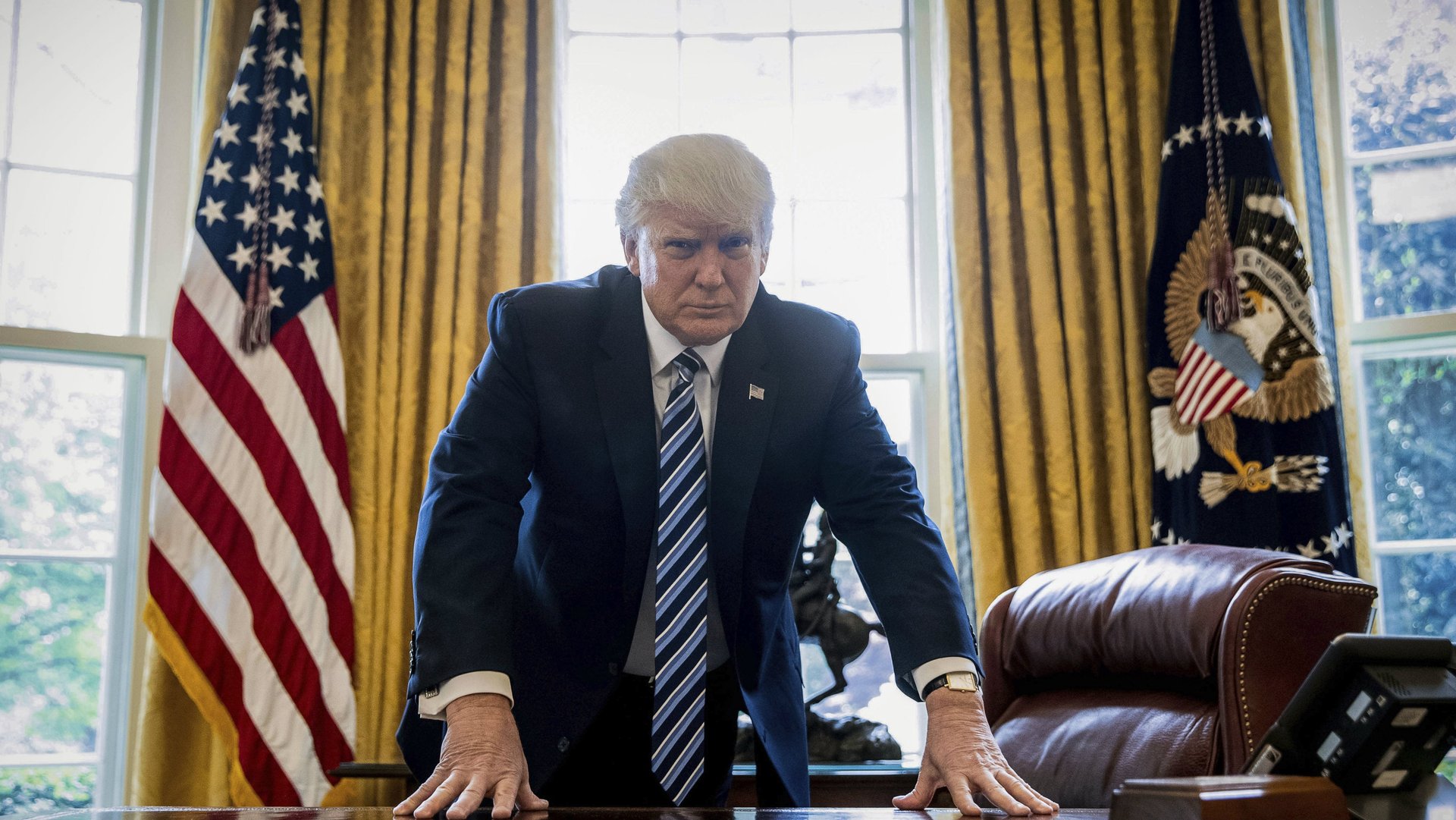Trump’s first judicial nominees: a right-wing blogger, an anti-gay lawyer, and two Obama holdovers
It is no secret that US president Donald Trump has been slow to nominate people to key positions in the US government. That’s as true of judgeships as it is of jobs in the administration. There are 132 federal judiciary vacancies, to which Trump has so far nominated only 14 people, and only the first three had their Senate Judiciary Committee hearings on June 14th: John Bush, Damien Schiff, and Kevin Newsom.


It is no secret that US president Donald Trump has been slow to nominate people to key positions in the US government. That’s as true of judgeships as it is of jobs in the administration. There are 132 federal judiciary vacancies, to which Trump has so far nominated only 14 people, and only the first three had their Senate Judiciary Committee hearings on June 14th: John Bush, Damien Schiff, and Kevin Newsom.
To be fair, the backlog isn’t all the Trump administration’s fault. Many of these seats are vacant because the Republican-controlled Senate refused for several years to start the nomination process for president Barack Obama’s nominees, often after state senators vetoed the candidates. The vacancies represent about 15% of the US’s overall federal judgeships, giving Trump the opportunity to reshape the US court system.
Most of these open judgeships are positions on the US’s 94 district courts, which hear civil and criminal cases, and apply federal laws and the constitution. Other open spots include 19 vacancies on the circuit courts, which hear appeals on cases from the district courts. These judges serve from 10 years to life in their new positions.
Civil rights advocates say some of Trump’s early nominees are troubling because they lack diversity, both racially and professionally. So far, the president has nominated just 14 people for these vacancies, but they follow a pattern of administration nominees overall—white, mostly male, and often from careers that support companies, the wealthy, or the government, rather than citizens.
“Almost all of his nominees have backgrounds representing the most powerful and wealthy litigants,” Kyle Barry, senior policy counsel of the NAACP Legal Defense and Educational Fund, Inc, wrote for Politico. “[They] have been prosecutors, corporate lawyers or both; none has advocated for civil rights or fought for the rights of indigent criminal defendants as public defenders.”
There are a few nominees who stand out for other reasons:
The right-wing blogger
John Kenneth Bush is Trump’s nominee for the Sixth Circuit. For nearly a decade he contributed regularly to Elephants in the Bluegrass, a political blog run by his wife, under the pen name G. Morris. In posts, he drew a tenuous parallel between Barack Obama and Monica Lewinsky and equated slavery to abortion as two of America’s greatest tragedies.
While blogging, he consistently cited WorldNetDaily, a group the Southern Poverty Law Center has deemed an extremist group for peddling conspiracy theories and white nationalism, including the lie that Obama was not born in the United States. During his Senate hearing, Bush said he “made some posts that I, today, would not do.”
The anti-gay lawyer
Bush isn’t the only judicial nominee to dabble in controversial blogging. Damien Schiff, Trump’s nominee for the US Court of Federal Claims, called Supreme Court justice Anthony Kennedy a “judicial prostitute” in a post.
Schiff also strongly disagreed with the Supreme Court’s decision in Lawrence v. Texas, which ended punishment for sodomy. And he criticized a school district for teaching students that homosexual families and heterosexual families are equally moral.
Alliance for Justice, a progressive judicial advocacy group, “strongly opposes” both Schiff and Bush, a spokesperson said, because of their “extremist positions” and because they have written material that is “hostile to women’s rights, LGBTQ rights, worker’s rights, the environment and more.”
Traditional conservatives
Several of Trump’s other nominees are more traditional conservatives, like Ralph Erickson, for the Eighth Circuit, who would replace Kermit Edward Bye, a Bill Clinton appointment.
Erickson is notable for imposing a death sentence (paywall) in North Dakota for the first time since 1914. The death penalty remains legal in a majority of US states, and there are plenty of supporters among US judges, but new death sentences have been declining since the late 1990s. The convicted man says he is innocent.
Allison Eid, a nominee to the Tenth Circuit who has yet to have her hearing, clerked for Supreme Court justice Clarence Thomas and is expected to follow in his conservative footsteps. She wrote the opinion on the Colorado Supreme Court that allows companies to fire employees for marijuana use, which is legal in Colorado, because federal law still bans it. Eid does represent a nod to economic diversity, however. She told the Denver Post that growing up with a single mother and without a silver spoon had a strong impact. Eid would replace Neil Gorsuch in the Tenth Circuit, whom Trump appointed to the Supreme Court.
Less conservative choices
Not everyone on the nominee list has a right-wing history. Trump’s nominees include two Obama nominees, David C. Nye and Scott L. Palk, whose appointments expired, and one of Minnesota’s first Jewish high court judges, David Ryan Stras. Also on the list are academics Amy Coney Barett of Notre Dame Law School and Scott L. Palk, an assistant dean at the University of Oklahoma.
After being approved by the Judiciary Committee, nominees need a simple majority vote in the Senate to be confirmed. It’s unclear whether it will have a chance to vote before the summer recess that starts in August.